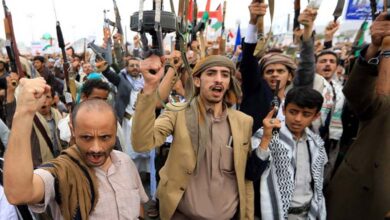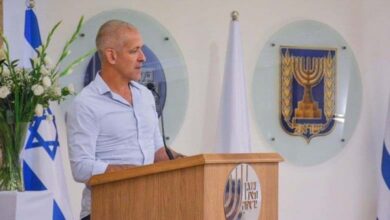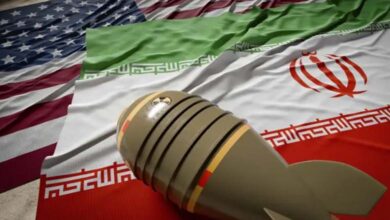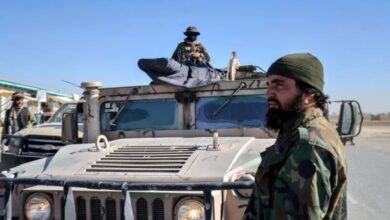Azerbaijani-Armenian Summit in the UAE: Peace Diplomacy
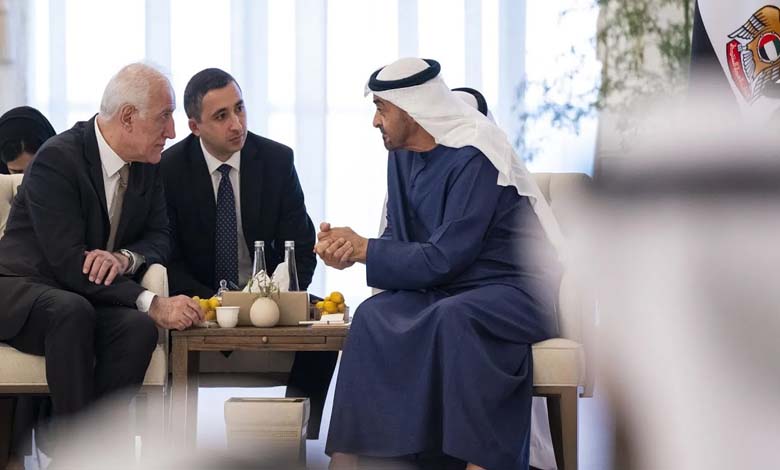
The United Arab Emirates continues to play a prominent role in resolving conflicts through diplomacy and promoting peace globally—efforts etched in humanity’s history in golden letters.
As part of these ongoing initiatives, Abu Dhabi is hosting a high-level summit this Thursday between the President of Azerbaijan and the Prime Minister of Armenia, within the framework of their peace process.
-
Iran exploits the War on Gaza to mobilize its agents in Azerbaijan
-
In coordination with Qatar – Turkey decides to transfer mercenaries from Libya and Azerbaijan to Afghanistan
This Azerbaijani-Armenian summit represents a major step toward resolving a nearly four-decade-old conflict. Its convening in Abu Dhabi is a new diplomatic success for the Gulf state, further establishing its status as a key player and vital partner in regional and international peace efforts.
It also highlights the global community’s confidence in the UAE’s mediation, rooted in a legacy of humanitarianism and a civilizational mission founded on values of love, tolerance, and resolving disputes through dialogue and diplomacy.
-
Erdoğan calls Azerbaijan for oil ”partnership” in Libya
-
Iran called Turkey’s ambassador over comments by Erdogan in Azerbaijan
According to a statement from the Azerbaijani presidency, “as part of the peace process between Armenia and Azerbaijan, a bilateral meeting will be held on July 10 in Abu Dhabi between Azerbaijani President Ilham Aliyev and Armenian Prime Minister Nikol Pashinyan.”
In March, both countries had announced they had reached a peace agreement following negotiations aimed at settling their decades-long dispute. At the time, the UAE welcomed the breakthrough, expressing hope that it would solidify bridges of communication and stability throughout the Caucasus region.
-
Erdoğan and Libya’s oil : Azerbaijan’s call for Turkey’s participation in oil exploration stirs controversy
-
Erdogan: Azerbaijan’s fight with Armenia was not over
On the eve of the summit, UAE President Mohamed bin Zayed Al Nahyan held separate meetings with both Ilham Aliyev and Nikol Pashinyan. He expressed the UAE’s support for all efforts aimed at promoting security, stability, and development in the Caucasus.
The discussions emphasized the importance of deepening bilateral cooperation in areas such as economy, investment, food security, renewable energy, and environmental initiatives. The UAE president reaffirmed the country’s desire to forge long-term partnerships with all Caucasus nations, particularly Azerbaijan.
-
Pompeo expressed its hope that Armenia defends itself against Azerbaijan
-
Armenia’s Ministry: Turkey arming Azerbaijan reveals expansionist ambitions in the Caucasus region
In his meeting with the Armenian Prime Minister, Sheikh Mohamed reiterated the UAE’s commitment to working jointly to achieve sustainable development and mutual prosperity, through constructive dialogue and diplomacy.
This summit is part of the UAE’s broader strategy of fostering global peace. A notable example was the UAE’s pivotal role in the reconciliation between Ethiopia and Eritrea in 2018, ending two decades of hostility and paving the way for regional stability.
-
Canada suspends arms sales to Turkey after claims of use by Azerbaijan
-
Nagorno-Karabakh declares that 18 of its civilians have been killed in confrontations with Azerbaijan
The UAE has also been actively engaged in the Ukraine conflict. Since the beginning of 2024, the UAE has successfully brokered 15 prisoner exchanges, resulting in the release of 4,132 detainees—a remarkable diplomatic and humanitarian achievement.
Russian President Vladimir Putin and Ukrainian President Volodymyr Zelensky have both publicly thanked UAE President Mohamed bin Zayed for his continuous efforts to mediate and pursue peace in a deeply divided region.
Since the era of founding father Sheikh Zayed bin Sultan Al Nahyan, the UAE has established itself as a vital actor and reliable partner in global peace initiatives—grounded in values of tolerance, human dignity, and cross-cultural dialogue.




